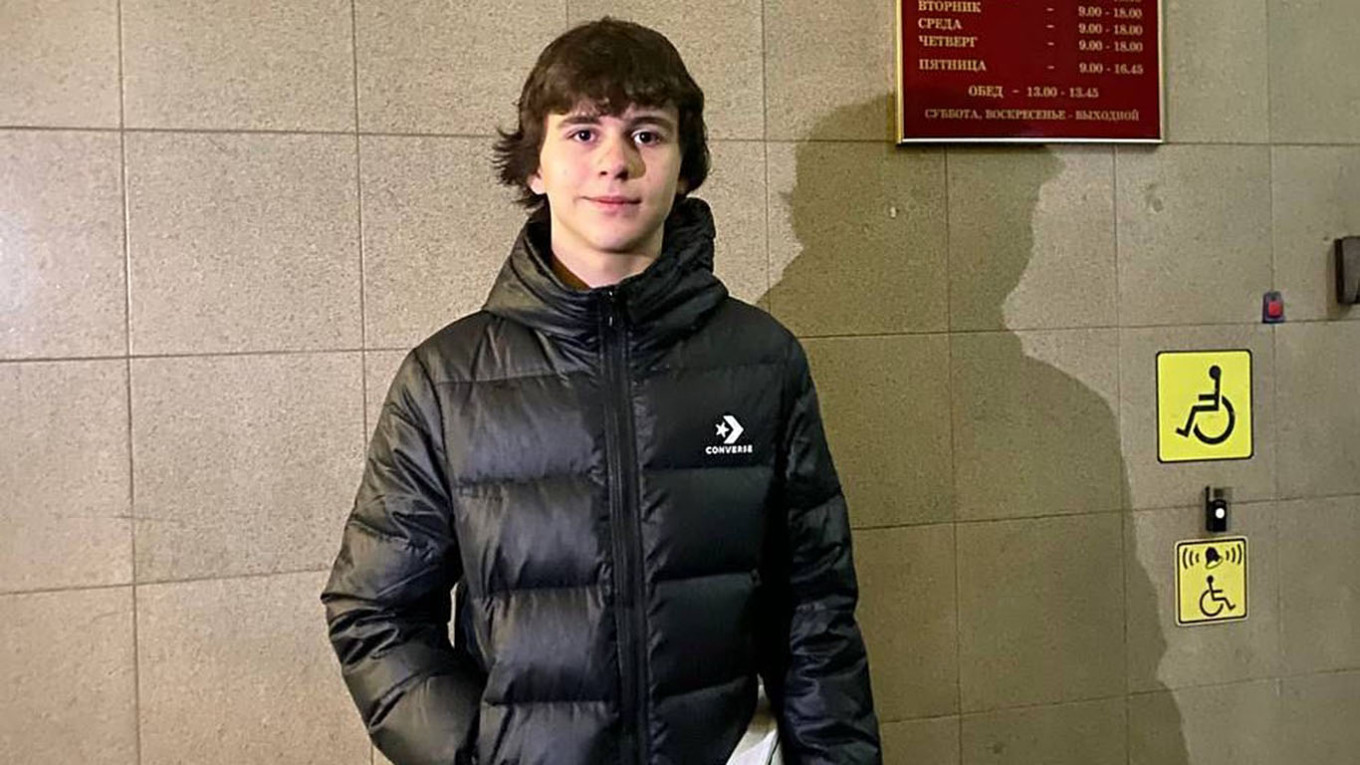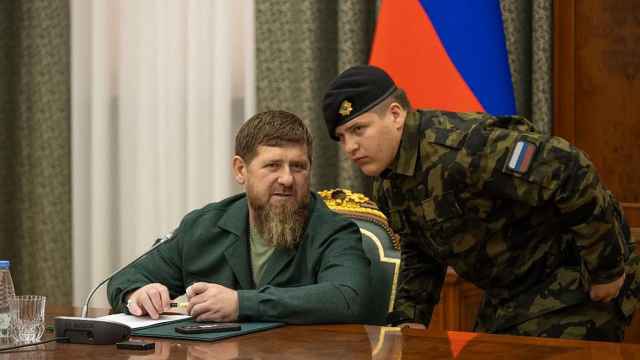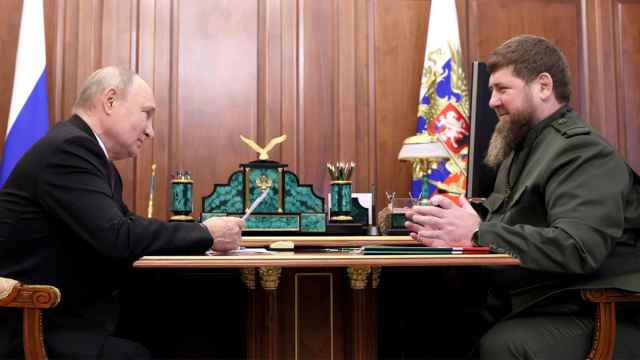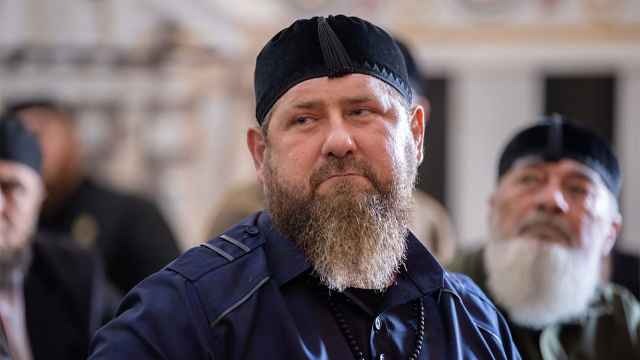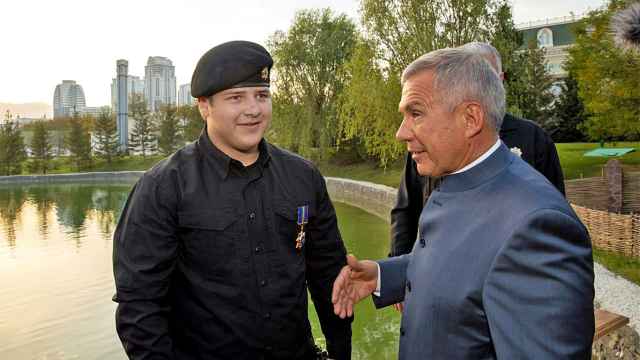When a Moscow court sentenced a 16-year-old boy from the republic of Chechnya to nearly two years in a penal colony last month, it did so in defiance of Chechens across the political spectrum.
Muslim Murdiev’s case on criminal hooliganism charges for a 2023 street brawl had brought him sympathizers ranging from Chechen leader Ramzan Kadyrov to the strongman’s fiercest critics in exile.
“It’s not just a criminal case. This case became a symbol of injustice and discrimination against a teenager from Chechnya, including in everyday life,” said Chechen human rights lawyer and prominent Kadyrov critic Abubakar Yangulbaev.
Murdiev was placed under house arrest in December 2023 following a brawl at the Khodynskoye Polye park in the northwest of the Russian capital.
Prosecutors maintained that he and four other boys deliberately provoked the fight by verbally attacking an unsuspecting passerby. Russia’s Investigative Committee said the episode was just one in a series of street fights incited by the teens that resulted in eight people injured.
Murdiev denied the accusations, claiming he was sticking up for a friend during the Khodynskoye Polye incident and was not even present at the other skirmishes.
Many from his home republic believed him.
“All of this happened because he stood up for people in trouble — that’s how it was most often seen by the public and within the diaspora,” Yangulbaev told The Moscow Times.
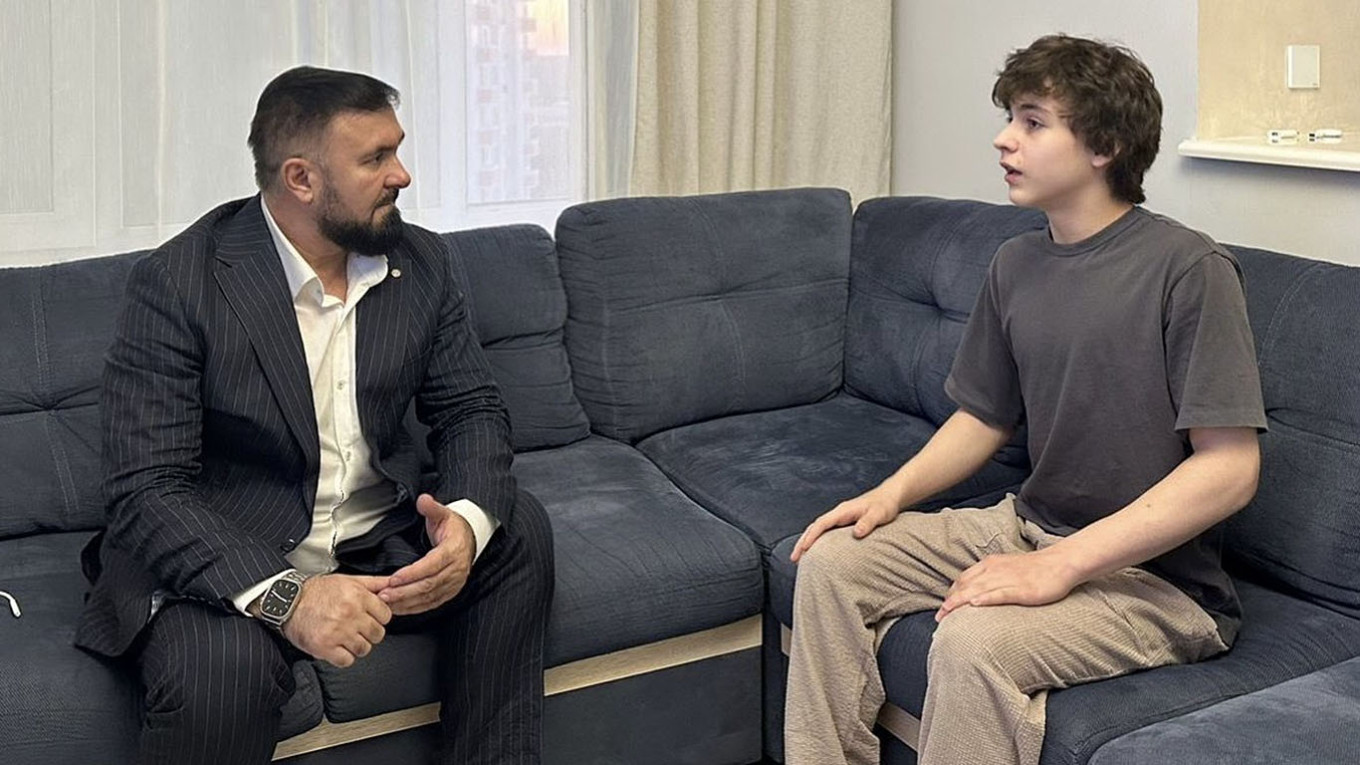
‘Kadyrov’s obsession’
In December 2024, Kadyrov singled out Murdiev’s case during his end-of-year press conference in Grozny, claiming he spoke to every official involved in it personally.
“Murdiev’s case shows that people at the top, the likes of Bastrykin and Kolokoltsev, are not in the positions they should be in,” Kadyrov said, referring to Russia's top investigator Alexander Bastrykin and Interior Minister Vladimir Kolokoltsev.
"They won't put him in jail. They won't do anything to him,” state-run Chechen media quoted him as saying.
Neither Bastrykin nor Kolokoltsev reacted to Kadyrov’s remarks. The Kremlin also declined to comment. Despite Kadyrov warning that “the Almighty will punish” those who prosecuted him, Murdiev was sentenced anyway.
Yelena Milashina, a veteran North Caucasus correspondent for the independent Novaya Gazeta newspaper, interpreted Kadyrov’s failed attempt to halt the investigation as another sign of his waning influence.
But experts who spoke with The Moscow Times had a different take.
Though Kadyrov “obviously did not get his desired outcome,” said North Caucasus analyst Harold Chambers, it remains unclear if the Kremlin orchestrated any backdoor negotiations between him and top justice officials, as well as “to what degree Kadyrov’s private actions matched his public outcry.”
“There is not enough information to make more definitive claims about Kadyrov’s status off of this case,” Chambers told The Moscow Times.
Yangulbaev believes that Murdiev’s sentencing shows that Kadyrov’s relationship with Moscow is virtually unchanged. While maintaining a public image of an untouchable strongman, Kadyrov remains dependent on Moscow, “constantly forced to demonstrate his loyalty.”
“If this young man hadn’t had so much public support, Kadyrov would have been the first in line to condemn him, calling for the maximum sentence in a show of loyalty to the Kremlin,” said Yangulbaev.
“Kadyrov’s obsession with this case is not an expression of genuine concern. It’s a pure show of power and a way to seek support from the public…He is defending a young, brave boy because the public sees it from the same perspective. It is a tool he uses to balance his position: with one hand he punishes, with the other he protects,” added the lawyer.
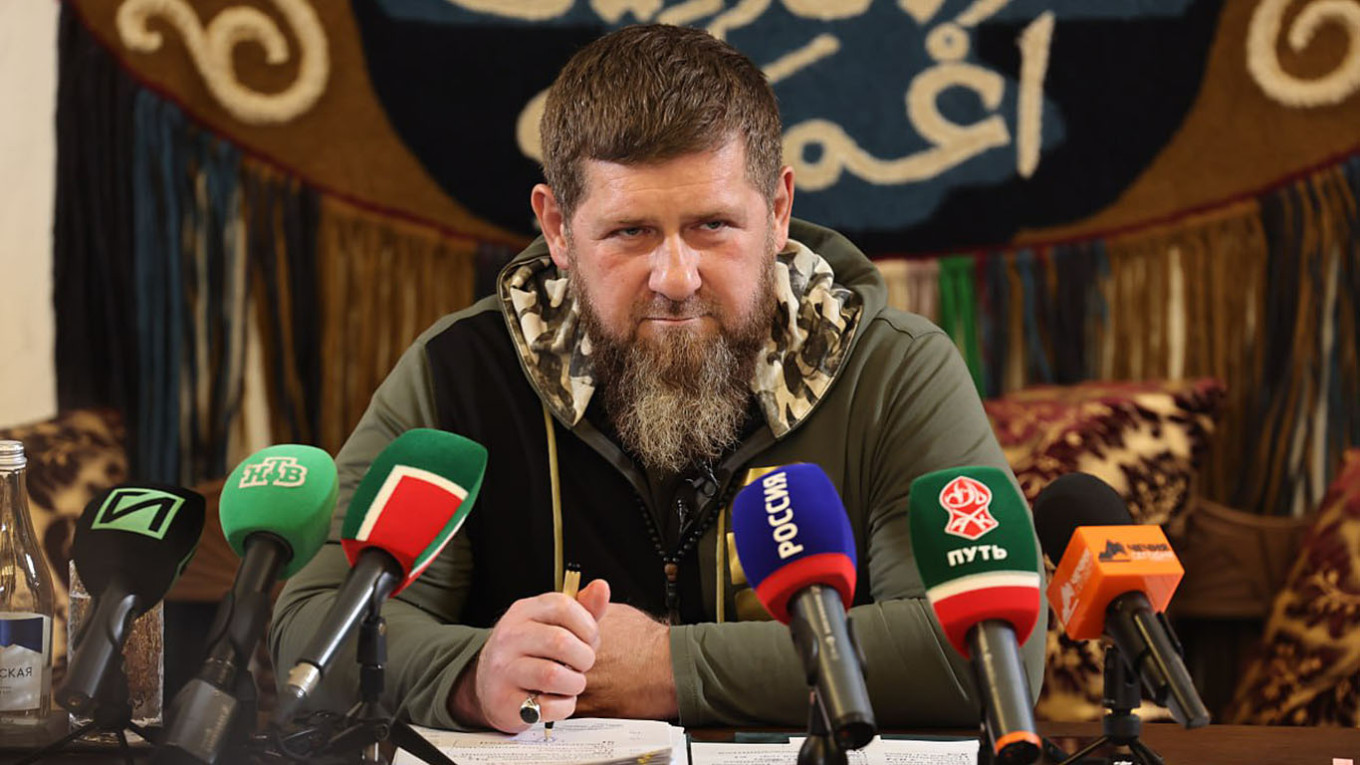
Ethnic discrimination?
Social media users from the North Caucasus have shown support for Murdiev with a wave of accounts and pages titled “Free Muslim” and video addresses to Russian officials.
Whether Murdiev’s version of events was true or not, to people from the Caucasus, his arrest offered validation to their experiences of facing systemic discrimination in their own country.
“I am an ethnic Chechen woman who has lived in Moscow for 30 years. Recently, I became worried about the selective application of justice…in Moscow and other cities of Russia,” social activist Aset Tasueva said in a viral video addressed to President Vladimir Putin.
“We are a part of Russia. We are Chechens. We have no other motherland except Russia. But we are starting to feel like outsiders because everywhere we hear that Russia is a place for Russians and that we are migrants…in our own country,” added Tasueva, citing Murdiev’s case as an example of unfair justice.
Outrage from both the public and Chechen officials even prompted Russia’s Investigative Committee to release a video showing a fight allegedly involving Murdiev.
In the video, which The Moscow Times could not independently verify, a voice behind the camera is heard screaming, “Throw him off, Muslim!” in an apparent show of support for Murdiev.
Yet the footage failed to sway public sentiment or placate Kadyrov.
“In this particular case, Kadyrov’s interest…was shaped by the more confrontational and aggressive policing of natives of the Caucasus and Central Asia, and Muslims generally, after the Crocus City Hall attack,” Chambers said.
But human rights defender Stefania Kulaeva cautioned against seeing the trial solely through the lens of ethnic discrimination.
Though people from the Caucasus and especially Chechnya do indeed face ethnic profiling, “the question of how the investigation and the court treated this particular case can only be discussed against other similar cases involving teenagers,” Kulaeva, an expert at the Brussels-based Anti-Discrimination Center (ADC) Memorial, told The Moscow Times.
“Why did the scandal break out over this boy only? Was it because the others weren’t Chechen and Ramzan [Kadyrov] didn’t care [about them]? Who were those other teenagers, anyway?” she asked, referring to the four other defendants who received harsher sentences of up to three and a half years in prison.
“That’s at the core of the question of whether there was bias or not,” she said.
Either way, Kulaeva believes that Murdiev’s story touches on several other important issues facing Russian society, namely the wartime rises in street violence and imprisonment of teenagers even for minor offenses.
Russian authorities are increasingly using imprisonment as a disciplinary measure against teenagers who criticize the war in Ukraine or government policies.
At least 544 minors had been detained over anti-war protests as of 2023, according to human rights watchdog OVD-Info.
At least 56 teenagers aged 14 to 17 were behind bars on charges of terrorism and sabotage activities as of December 2024 and 166 were added to Russia’s “terrorists and extremists” registry that same year, according to the Memorial human rights group.
“Never before have there been so many arrested teenagers receiving extremely long sentences,” said Kulaeva.
“In Russia, children are imprisoned even for online communications — including private ones — for statements on social media, and so on. So it’s hard to consider Murdiev’s case something exceptional,” she noted.
Murdiev, who already served 10 months out of his sentence under house arrest, is expected to spend more than a year behind bars. His term could be reduced through an appeal in the coming months.
A Message from The Moscow Times:
Dear readers,
We are facing unprecedented challenges. Russia's Prosecutor General's Office has designated The Moscow Times as an "undesirable" organization, criminalizing our work and putting our staff at risk of prosecution. This follows our earlier unjust labeling as a "foreign agent."
These actions are direct attempts to silence independent journalism in Russia. The authorities claim our work "discredits the decisions of the Russian leadership." We see things differently: we strive to provide accurate, unbiased reporting on Russia.
We, the journalists of The Moscow Times, refuse to be silenced. But to continue our work, we need your help.
Your support, no matter how small, makes a world of difference. If you can, please support us monthly starting from just $2. It's quick to set up, and every contribution makes a significant impact.
By supporting The Moscow Times, you're defending open, independent journalism in the face of repression. Thank you for standing with us.
Remind me later.



